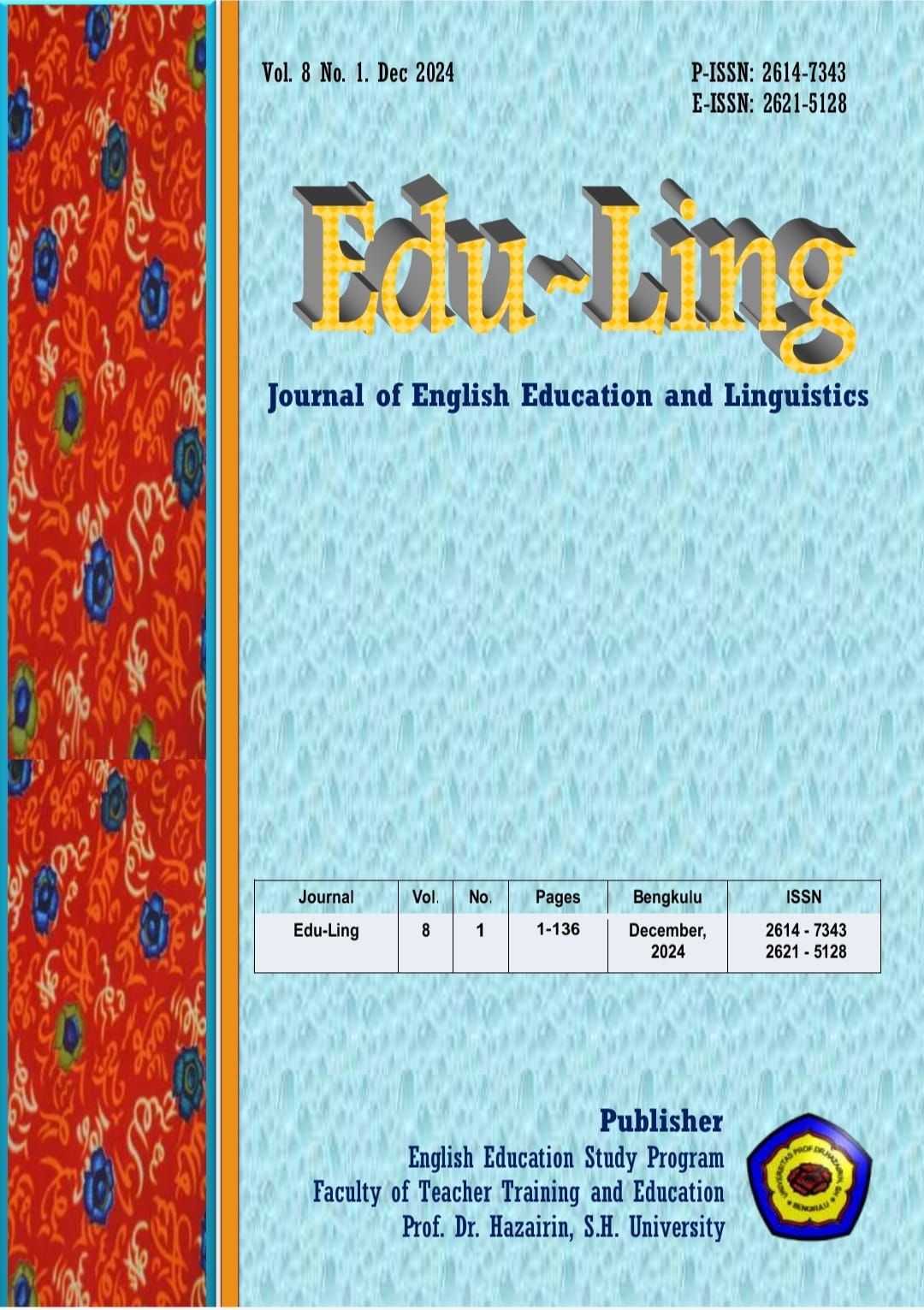Analysis of the Implementation of Merdeka Curriculum for English subjects at the Islamic Junior High School of Pancasila Bengkulu
DOI:
https://doi.org/10.32663/edu-ling.v8i1.4964Keywords:
Merdeka Curriculum Implementation, English Language EducationAbstract
This study analyzes the implementation of the Merdeka (Independent) Curriculum for English subjects at the Islamic Junior High School (MTs) of Pancasila, Bengkulu, with a focus on assessing its effectiveness and identifying the challenges faced by educators and students. The Merdeka Curriculum, introduced to foster student-centered learning, critical thinking, and creativity, requires significant adaptation in schools with limited resources, diverse student backgrounds, and minimal teacher training. This research employs a mixed-methods approach, including surveys, interviews, and classroom observations, to examine the curriculum’s impact on teaching practices, student engagement, and language proficiency outcomes. The findings reveal that while the Merdeka Curriculum holds potential for enhancing English learning, its implementation faces significant obstacles. Teachers report challenges in aligning instructional methods with the curriculum's objectives due to a lack of professional development and teaching resources. Additionally, students' varied English proficiency levels further complicate curriculum application, necessitating frequent adjustments to lesson plans and assessment techniques. This study concludes that successful implementation of the Merdeka Curriculum in English subjects requires increased training, clear guidelines, and better resource allocation to ensure that its goals are achieved effectively. The results contribute to ongoing discussions on curriculum reform in Indonesia, emphasizing the need for tailored support in resource-constrained educational settings.









